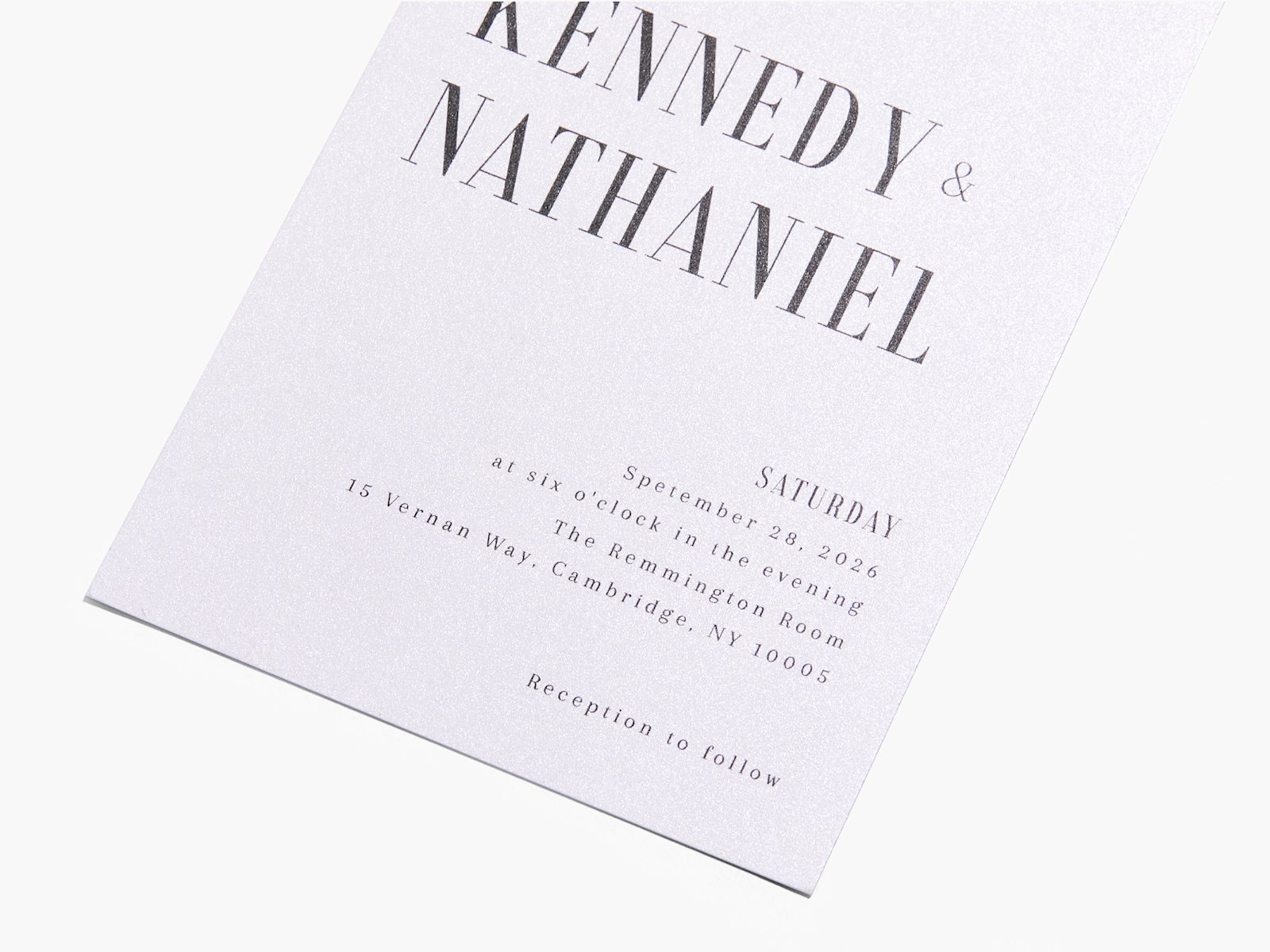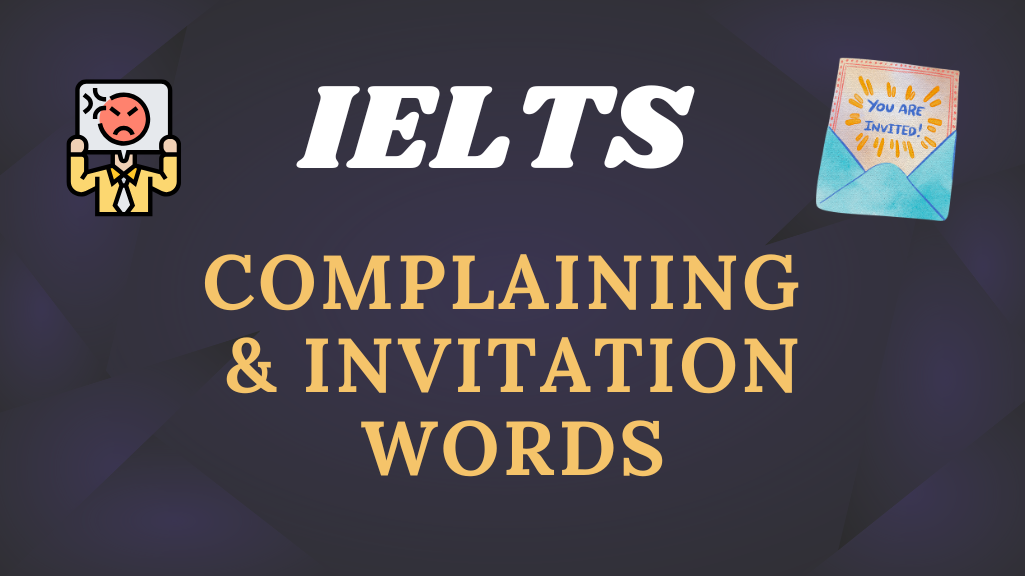In everyday communication, knowing how to express complaints and extend invitations politely and effectively is essential. In IELTS, particularly in Speaking Part 2 & 3 and Writing Task 1 (General Training), you might need to write a letter of complaint or invitation. Understanding the right tone, vocabulary, and structure will boost your score and make your responses sound natural.
In this article, we’ll break down complaining and invitation styles with useful words, phrases, and real-life examples to help you ace your IELTS test.
Complaining Style & Words
Complaints can be formal or informal, depending on the situation. In IELTS Writing Task 1, formal complaints are common, especially when writing to a company, a landlord, or an authority. In Speaking, you may need to describe a bad experience and explain your dissatisfaction.
Key Elements of a Complaint
1. State the problem clearly – Explain what went wrong.
2. Provide details – Include relevant information like dates, names, or descriptions.
3. Express dissatisfaction politely – Avoid being too aggressive; instead, use professional or polite expressions.
4. Suggest a resolution – Explain what you expect as a solution.
5. Maintain a respectful tone – Even if you’re frustrated, being polite is key.

Common Complaint Words & Phrases
✅ Formal Complaints:
"I am writing to express my dissatisfaction with…"
"I would like to bring to your attention…"
"Unfortunately, I was disappointed with…"
"I would appreciate it if you could address this matter urgently."
"I expect a prompt resolution to this issue."
✅ Informal Complaints:
"I just wanted to let you know that…"
"I’m really unhappy about…"
"Honestly, this has been quite frustrating."
"Could you please look into this?"
| Complaint Type | Example Situations | Style | Example Phrases |
|---|---|---|---|
| Formal Complaint | Writing to a company about a defective product, complaining to a landlord, addressing an issue at a workplace | Polite, structured, professional | "I would like to bring to your attention that...", "I am writing to formally complain about…", "I am deeply concerned about…" |
| Neutral Complaint | Complaining to a friend about poor service, reporting an issue at a restaurant | Assertive but respectful | "I'm quite disappointed with the service today.", "I was expecting better quality.", "This isn’t acceptable, and I’d like it to be fixed." |
| Informal Complaint | Talking to a friend about bad food, complaining to a sibling about noise | Casual, direct, emotional | "This food is terrible!", "Ugh, this is so annoying!", "I can’t believe how bad this is!" |
IELTS Complaint Letter (Formal)
Question: You recently bought a laptop from an online store, but it is not working properly. Write a letter to the company.
Dear Customer Service Team,
I am writing to express my dissatisfaction with a laptop I purchased from your online store on February 15, 2025 (Order #12345). Unfortunately, the device has several issues, including overheating and frequent crashes.
I would appreciate it if you could arrange a replacement or a full refund as per your store policy. Kindly address this matter at your earliest convenience. I look forward to your prompt response.
Sincerely,
[Your Name]
Invitation Style And Words
Invitations in IELTS Writing Task 1 (General Training) can be formal or informal. In the Speaking test, you may have to invite a friend to an event or discuss a social gathering.
Key Elements of an Invitation
1. Extend the invitation clearly – State what the event is.
2. Provide key details – Mention time, date, location, and purpose.
3. Express enthusiasm – Show excitement about the event.
4. Mention any requirements – Let them know if they need to bring something or dress a certain way.
5. Request a response – Ask them to confirm attendance.

Common Invitation Words & Phrases
✅ Formal Invitations:
"I would be delighted if you could join us for…"
"We cordially invite you to…"
"It would be an honor to have you at…"
"Kindly let us know at your earliest convenience if you will be attending."
✅ Informal Invitations:
"Hey! Want to come over for…?"
"I’d love for you to join us!"
"Let’s get together for…"
"It’s going to be awesome—you should definitely come!"
| Type | Situation | Style | Example Phrases |
|---|---|---|---|
| Formal Invitations | Business meetings, weddings, official events | Professional, respectful | "You are cordially invited to...", "It would be an honor to have you at...", "We request the pleasure of your company at..." |
| Semi-Formal Invitations | Office parties, university events, social gatherings | Friendly but polite | "I would love for you to join us at...", "We’re hosting an event, and we’d love to see you there!" |
| Informal Invitations | Hanging out with friends, birthday parties, casual meetups | Relaxed, conversational | "Hey! Wanna grab dinner?", "Let’s catch up this weekend!", "You should totally come over!" |
Sample IELTS Invitation Letter (Formal)
Question: You are hosting a graduation party and want to invite a professor who helped you. Write a letter of invitation.
Dear Professor Adams,
I hope this email finds you well. I am pleased to invite you to my graduation celebration on April 10, 2025, at The Grand Hotel. Your guidance and support have been invaluable, and I would be honored if you could join us for this special occasion.
Please let me know at your earliest convenience if you will be able to attend. I look forward to celebrating together.
Best regards,
[Your Name]
Responding to Invitations (Accepting or Declining)
✅ Accepting an Invitation Politely:
- "I’d love to join! Thanks for the invite."
- "It sounds amazing! Count me in."
- "Thank you for inviting me! I’ll be there."
❌ Declining an Invitation Politely:
- "I’d love to, but unfortunately, I have prior commitments."
- "That sounds great, but I won’t be able to make it this time."
- "I really appreciate the invitation, but I have other plans."
Cultural and Contextual Differences
Different cultures have varying levels of directness in complaints and invitations. For IELTS, remember: ✔ British English prefers indirect and polite complaints. Avoid aggressive language.
✔ Formal invitations should always sound respectful. Even if inviting a close friend in a formal letter, keep it professional.
✔ Speaking invitations can be more casual. Use contractions and friendly expressions.
In IELTS, mastering complaint and invitation styles will significantly improve your Writing Task 1 and Speaking responses. Complaints should be structured, polite, and solution-focused, while invitations should be clear, enthusiastic, and engaging. Use these strategies and phrases to sound natural, confident, and well-prepared in your exam!

